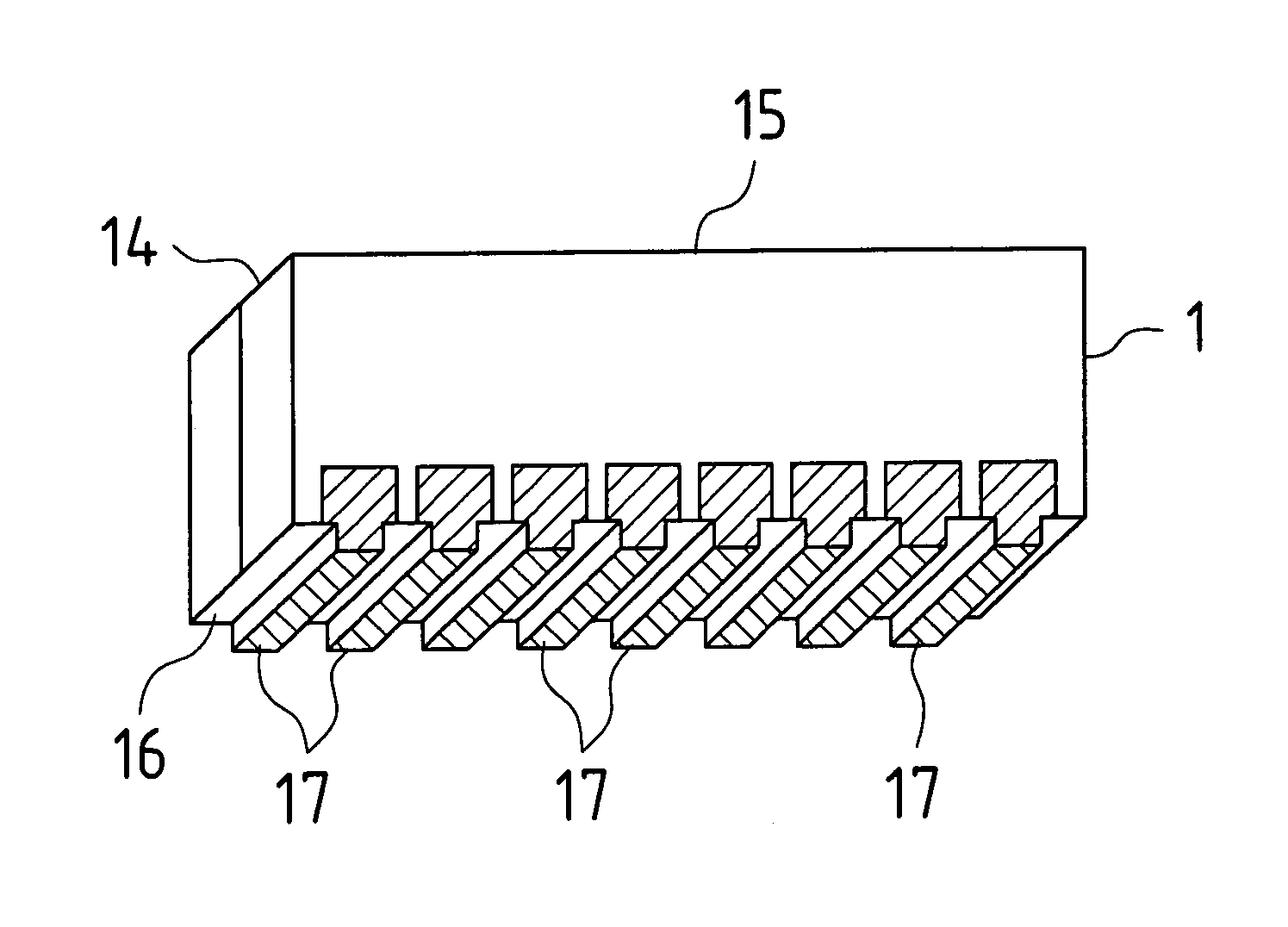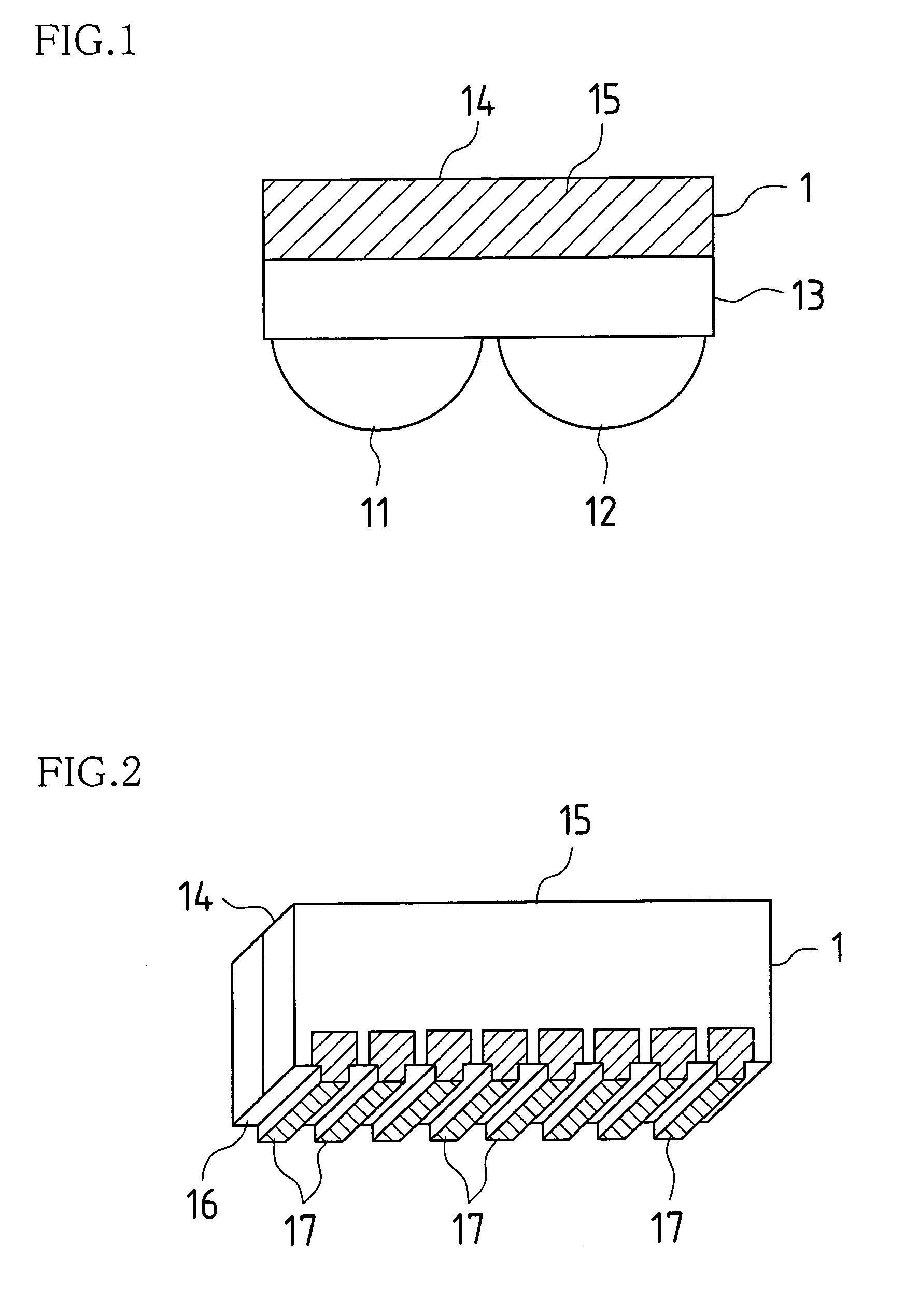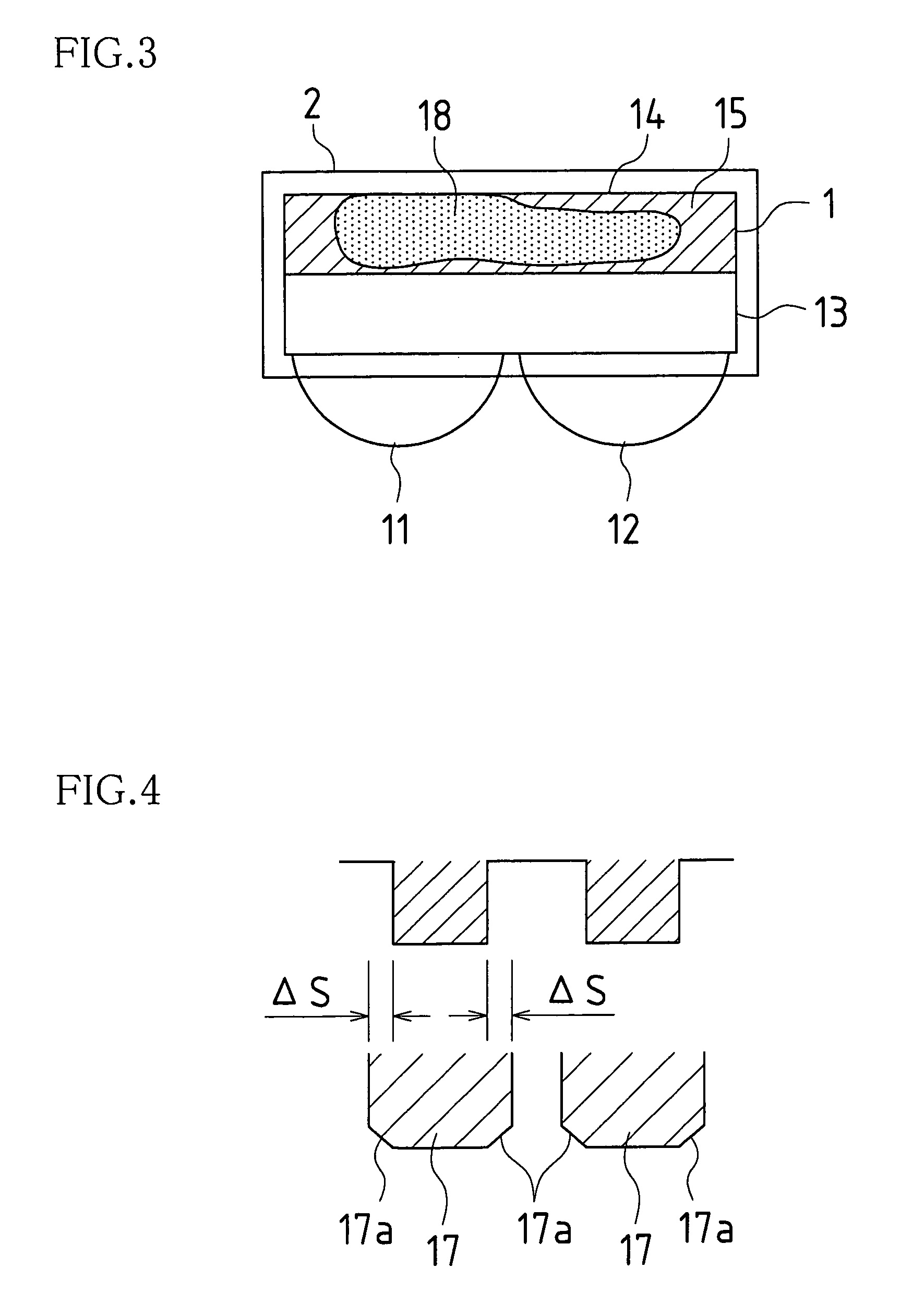Semiconductor device and manufacturing method for same
a semiconductor and manufacturing method technology, applied in the direction of basic electric elements, magnetic/electric field screening, electromagnetical transceivers, etc., can solve the problems of preventing reliable communication, abnormal operation of the device, interference in the device, etc., to reduce the size of the shield case, increase the surface area of copper foil, and increase the mounting strength
- Summary
- Abstract
- Description
- Claims
- Application Information
AI Technical Summary
Benefits of technology
Problems solved by technology
Method used
Image
Examples
Embodiment Construction
[0031]Below, embodiments of the present invention are described with reference to the drawings.
[0032]FIGS. 1 and 2 are drawings showing the external appearance of a semiconductor device in accordance with the present invention, FIG. 1 being a plan view of the semiconductor device as viewed from above, and FIG. 2 being an oblique view of the bottom of the semiconductor device as viewed from the back.
[0033]In forming this semiconductor device, substrate(s) 1—patterned wiring, not shown, being formed thereon—is furnished with light emitting diode chip(s), photodiode chip(s), IC chip(s), and / or other such chip(s), not shown; these are mounted thereon by means of die bonding, wire bonding, and / or the like; and molded resin(s) 13 is or are thereafter applied to the entirety thereof together with light-emitting lens portion(s) 11 and light-receiving lens portion(s) 12. In addition, in the present embodiment, the manufacturing method described below is employed to form electrically conducti...
PUM
 Login to View More
Login to View More Abstract
Description
Claims
Application Information
 Login to View More
Login to View More - R&D
- Intellectual Property
- Life Sciences
- Materials
- Tech Scout
- Unparalleled Data Quality
- Higher Quality Content
- 60% Fewer Hallucinations
Browse by: Latest US Patents, China's latest patents, Technical Efficacy Thesaurus, Application Domain, Technology Topic, Popular Technical Reports.
© 2025 PatSnap. All rights reserved.Legal|Privacy policy|Modern Slavery Act Transparency Statement|Sitemap|About US| Contact US: help@patsnap.com



